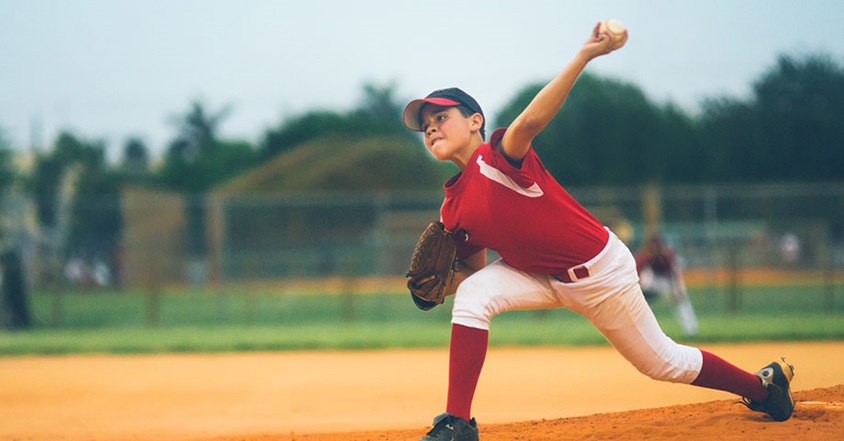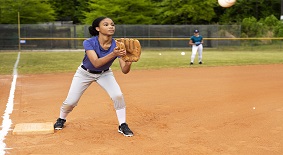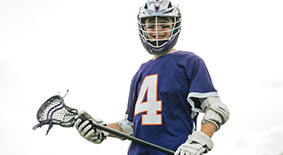Youth Sports: Should Your Growing Athlete Specialize in One or More?
To reduce the risk of overuse injuries or burnout from sports specialization at an early age, our experts recommend kids take time off between seasons and rest weekly.
As your athlete grows, playing more than one sport is likely the better option for your child.
What is sports specialization?
Specialization is intensive training or competition in a single organized sport for more than eight months a year by children 12 years old and younger.
According to the sports medicine specialists at Children’s Healthcare of Atlanta, kids who specialize in playing one sport early on may face the risk of overuse injuries from intense training and burnout or stress from playing too often.

If a child is repeatedly participating in just one sport—training intensely and competing while their body is still growing and developing—it doesn’t allow their body enough time to recover between resting and playing.
“A young, growing athlete is very susceptible to overuse issues with a lack of variety in their activities. They need just as much, if not more, time to recover from repetitive overuse,” explains Stephen Kroll Jr., MD, a Pediatric Sports Medicine Primary Care Physician in the Sports Medicine Program at Children’s Healthcare of Atlanta.
Dr. Kroll reports that his team is seeing more and more overuse injuries in children and teens as a result of early sports specialization. These injuries can have a lifetime effect on a child’s game, not to mention the child’s quality of life.
What is an overuse injury?
An overuse injury is damage to a bone, muscle, ligament or tendon that occurs over time, usually from improper training or technique when a child is performing repetitive motions.
"The new trend of early specialization in sports at a younger age has led to a huge increase in these overuse injuries,” says Dr. Kroll. “Young bones are more susceptible to overuse injuries than fully developed bones."
According to a study conducted by the University of Wisconsin, 46% of growing athletes who specialized in a single sport suffered a lower-body injury, nearly twice the 24% rate for kids who played multiple sports while they were still growing.
“It is well documented that every athlete—regardless of the sport or position they play—needs to take at least three to four months off a year from playing a single sport to help reduce stresses,” says Dr. Kroll. “However, that doesn’t mean your child needs to be inactive. Allow him to participate in a variety of sports throughout the year, as this can be a form of cross-training that enhances each individual sport naturally and better.”
Cross-training may help growing athletes understand the importance of physical activities, providing a greater chance of excelling in a single sport when they’re a little older or increasing the chance that they will grow up enjoying sports and physical activity for the rest of their lives.
Luckily, there are many ways your kid or teen can still stay active in sports while preventing and avoiding unnecessary injury.
- Take time off each week. One to two days off each week from playing or practicing for a sport can decrease the chance of injuries.
- Encourage free play and limit parental involvement. Kids enjoy playing with friends and will enjoy exercising more if they are in charge of teams, rules and schedules. It can also help kids develop their skills.
- Play a variety of sports. Participating in multiple sports throughout the year until your child reaches puberty decreases the chance of injuries, stress and burnout.
- Play on just one team each season. Participating in more than one sport at a time could result in your child sustaining an overuse injury more easily.
- Take time off between sports seasons. Take one month off from a sport at least three times each year to allow for physical and psychological recovery.
- Delay focusing on one sport. Postponing specialization in a single sport until late adolescence may lead to a higher chance of a child accomplishing his athletic goals as an elite athlete as well as a higher chance of lifetime sports involvement and physical fitness.
When your athlete is injured in practice or competition, getting the right diagnosis and initiating proper care and treatment as quickly as possible is key.
“If your child or teen suffers an injury, it matters who takes care of that injury,” says Dr. Kroll. “A growing athlete’s anatomy and physiology is quite different than that of an adults. A specialist trained in understanding these differences is key to not only proper diagnosis, but the ultimate treatment plan and recovery. Children’s is committed to short-term recovery and a child’s long-term safety, as well as injury prevention.”
The pediatric sports medicine primary care physicians at Children’s provide comprehensive evaluations for a wide range of injuries and conditions that affect growing athletes, from soccer players and gymnasts to swimmers, dancers and cheerleaders.
Keeping Young Athletes Healthy

Whether your teen athlete plays one sport or 10, where you take them matters.
The highly qualified and experienced pediatric sports medicine specialists at Children’s are dedicated exclusively to youth and teen athletes. Each member of our team is focused on getting kids back to doing the things they love most in the safest ways possible.
Find a SpecialistStephen Kroll Jr., MD, a Sports Medicine Primary Care Physician in the Sports Medicine Program at Children’s Healthcare of Atlanta, is board-certified in pediatrics and sports medicine. Dr. Kroll specializes in the diagnosis and treatment of sports-related injuries, nonoperative musculoskeletal injuries, overuse injuries and concussion management. Dr. Kroll is also a founding member of the Pediatric Research in Sports Medicine (PRiSM) organization. Early morning appointments are available with Dr. Kroll at our orthopedic and sports medicine clinic at Children’s at Meridian Mark.
This content is general information and is not specific medical advice. Always consult with a doctor or healthcare provider if you have any questions or concerns about the health of a child. In case of an urgent concern or emergency, call 911 or go to the nearest emergency department right away. Some physicians and affiliated healthcare professionals on the Children’s Healthcare of Atlanta team are independent providers and are not our employees.
Contact Us 404-785-KIDS (5437)




